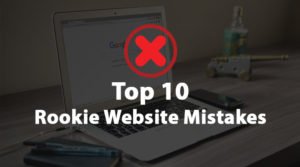The Big Money In Your Online Business Is Not Where You Think It Is
As someone who made a healthy living for many years entirely from online businesses, I know how lucrative online businesses can be. The heady early days of Adsense, a program that brought easy monetizing to the masses, have long gone, but the internet has evolved from those experiments in visitor and customer acquisition, and today presents opportunities even more exciting in the range and depth they offer.
Entrepreneurs are rising to the challenge – change is happening everywhere; new developments / exciting concepts are being created at a frenetic speed. Innovators, smart thinkers and entrepreneurs are creating all manner of websites and online services that are, in some cases, changing the world and in many cases generating a lot of wealth.
Monetizing Your Website
Granted, some of these fancy new web businesses are pre-revenue and may never get to break-even. But most online businesses are doing very nicely in 2016.
And making money. Lots of it. And that matters because no matter how good you are at getting the traffic in, you may feel your talent is wasted if you can’t convert the traffic to cash.
There’s no shortage of ways to generate that revenue, of course, from selling space on your site …to selling goods and services …to creating leads for other sellers. However, monetizing is no more a shot in the dark, it has matured and there are many good articles on how to monetize websites.
I’ve explored various ways of extracting profits from websites, and have made a healthy living online since the late nineties, but the activity that made me more money than all the others put together is an activity that’s a step up from selling space and selling products.
It’s the selling of whole websites.
Why On Earth Would You Sell A Cash Cow?
If a website is pumping money into your bank account every month, why would you sell it?
Ans: Because it makes financial sense. When and if you can get a lot more for your website than you’re likely to gain in profit over the next few years, it’s time to sell. Well, maybe not the logical or emotional time to sell but, to me, it’s the right time from a financial / economic standpoint.
But surely, people argue, if you kept the site for long enough you’d make all that money anyway, and still own the site.
True, but here’s my reasoning: Owning a site involves committing time and energy to managing it, keeping it current, protecting it from attack, working on it to maintain (or, preferably, grow) traffic and revenue. One gets weary, bored, loses focus, finds more interesting toys … and the site suffers. Probably 99% of all blogs ever started with great enthusiasm ended up abandoned. I learned that the best time to sell is at the peak. Not when ennui has set in and traffic analytics flatlined or, worse, started to decline. No, that’s when you’ll have a hard time selling (and I’ve experienced that as well!)
Also, all business represents risk and online businesses are riskier than most. Small regulatory changes, Google algo changes, a major affiliate company going under can all have a dramatic impact and can, in fact, wipe out your profitable little business. There’s no guarantee that if you continue to hold the business you’ll make those profits you predicted over the next few years.
The best time to sell is when visitors, revenue, excitement is all on the up and buyers of websites are paying based on what they can reasonably see in earning projections (based on the current trajectory)! That’s when you get the highest price.
Price? How much again?
How long is a piece of string? If you go to places like Flippa that attract primarily flotsam and jetsam (with average prices of way below $1000) you may find sites selling for 12x their monthly profit or 24x their monthly profit.
But that’s at one end of the market. Develop a solid online business and it’s not impossible to command a price equal to 5x or 10x your annual revenue.
Caveat: Very few sites can go to market with that kind of multiple and actually achieve a sale. There’s no shortage of sellers trying to get unrealistic prices for their website and most tend to be bitterly disappointed when the market doesn’t agree with their own valuation and no offers are forthcoming. But it’s possible to get those prices and I’m going to provide a few tips on how you can get there.
There are factors that can tilt the balance in your favor. I wrote about this way back in, I believe, 2006. All those tips are still valid. Preparing plays a big part in getting a good price. Tidy your site up, have all stats and figures neatly organized complete with proof, pre-empt due diligence questions and have your answers ready etc.
Oh yes, and choose the right location to advertise your business for sale. An online auction marketplace attracts a very different type of buyer, not the serious business players, the big boys, the ones who can pay 10x annual earnings without flinching. Find a good business broker to help you reach the right audience.
Some additional tips if you’re planning a future sale
Features that make your site additionally attractive to buyers and assist in attracting the serious money are, in no particular order:
Recurring income
Buyers love this captive revenue stream, it means they don’t have to spend time / money chasing new customers for every sale. There’s security in a steady revenue stream and they pay well for that.
Sound management team
If your site is reliant on your personal skills / contacts / knowledge of what parts fit where … you are in a seriously disadvantaged position. If, however, you have staff running the show, detailed manuals and guides that can get new employees quickly up to scratch, and you can take a six month holiday without the site’s revenue being affected, you’ve got a decent business there to sell (not a job disguised as a business).
Low risk
The more third party services you are reliant upon to deliver the revenue and profit, the more risk your website presents to the buyer and the lower the price they’ll pay. Keep risks low, keep reliance on third parties to a minimum. I know this is easier said than done but buyers do freak out when risk assessments show several pages of dependencies.
Large market share
If you can grow your business so you have a significant market share in your industry that makes you extremely attractive and leaves you in a very strong negotiating position.
No customer concentration
This is another risk factor – if all (or most) of your revenue comes from one or two customers, that’s not a great package to present to buyers.
I wish you good luck …and big money.

 Top 10 Rookie Website Mistakes
Top 10 Rookie Website Mistakes 9 Examples of Reviews Websites Built with WordPress
9 Examples of Reviews Websites Built with WordPress The Art of Freelance Blogging Book Review
The Art of Freelance Blogging Book Review 10 Tools To Help You Create Content, Promote Your Blog, and Manage Everything
10 Tools To Help You Create Content, Promote Your Blog, and Manage Everything
{ 2 Responses }